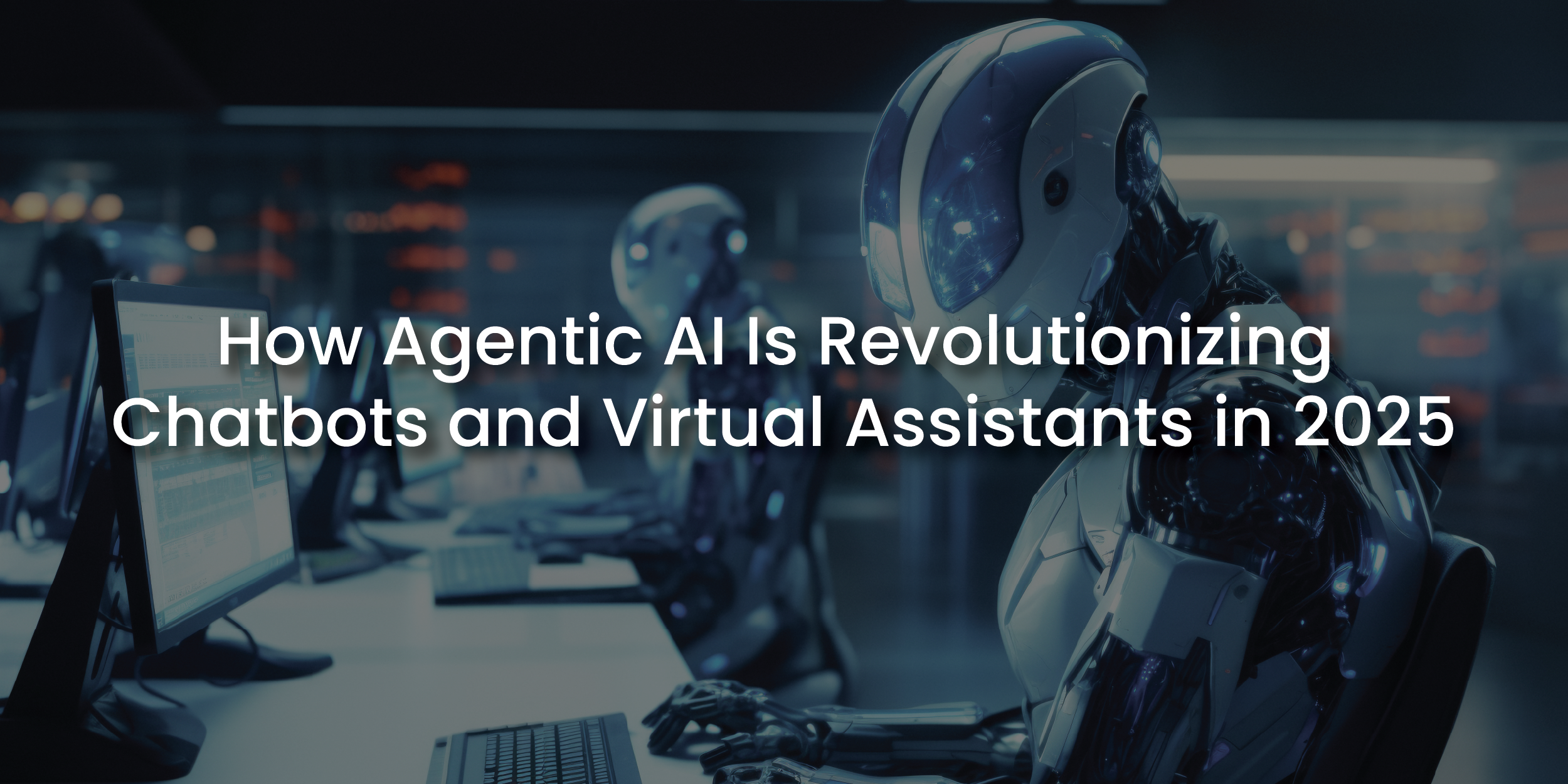In 2025, a new paradigm in artificial intelligence is taking center stage—Agentic AI. Unlike traditional rule-based or reactive AI systems, agentic AI introduces a new level of autonomy, goal-oriented behavior, and self-directed learning. This shift is not just incremental; it is revolutionary, especially in the fields of chatbots and virtual assistants.
In this blog, we explore how agentic AI is reshaping the capabilities, roles, and user experiences of modern AI assistants, and what it means for businesses and consumers alike.
What Is Agentic AI?
Agentic AI refers to systems that act with a sense of agency—they make decisions, plan actions, and execute tasks autonomously to achieve specified goals. Think of it as moving from a static "if-this-then-that" model to a dynamic "I-know-what-you-want-and-I'll-handle-it" intelligence.
These agents:
-
Set their own sub-goals
-
Learn from context and past experiences
-
Take proactive actions
-
Adapt strategies based on feedback
This is a major departure from traditional AI, which requires user input for each action.
How Chatbots and Virtual Assistants Operated Before 2025
Before the rise of agentic AI, chatbots were largely scripted or NLP-based tools that responded to user prompts. Even the most advanced systems like GPT-based assistants or customer service bots:
-
Waited for instructions
-
Could not remember tasks across sessions effectively
-
Failed in multitasking or complex goal planning
-
Were limited to one-time interactions
The result? Useful but passive tools.
What’s Different in 2025: The Rise of Agentic Virtual Assistants
Agentic AI is a game-changer. Let’s explore the key differences and improvements in today’s virtual assistants:
1. Proactive Engagement
Agentic assistants don’t just wait—they initiate. For instance, your AI assistant might remind you of an upcoming flight, suggest better routes based on real-time traffic, or initiate a refund process when it detects a flight cancellation in your inbox.
2. Long-Term Memory and Contextual Awareness
In 2025, agentic systems can remember user preferences, past interactions, and behavioral patterns, making conversations deeply personalized and context-rich.
3. Multi-Tasking and Goal Management
Imagine asking your assistant to:
“Plan my next vacation, book the cheapest direct flight, find pet-friendly hotels, and set up a remote work schedule with my team.”
Agentic AI breaks this complex request into sub-tasks, handles dependencies, monitors progress, and even resolves conflicts—all autonomously.
4. Real-Time Decision Making
With embedded reasoning capabilities, agentic bots make dynamic decisions based on changing conditions. In customer service, for example, an agent can escalate complaints, issue refunds, and reroute logistics in real time—without human input.
5. Seamless Integration Across Platforms
Agentic assistants in 2025 are cross-platform natives—handling emails, Slack, calendar events, smart home devices, and CRM platforms—all from one unified interface.
Applications in Business and Consumer Technology
1. Customer Support
Agentic AI reduces operational load by handling Level 1 and Level 2 queries autonomously and routing only complex issues to human agents. This has led to 30-50% efficiency gains in some sectors.
2. E-Commerce
From personalized shopping journeys to proactive cart recovery messages and price alerts, agentic AI is helping brands increase conversion rates and lifetime value.
3. Enterprise Productivity
Agentic AI assistants now coordinate meetings, manage inboxes, write summaries, schedule follow-ups, and act as true executive aides.
4. Smart Homes
Virtual assistants are now capable of coordinating routines, energy usage, security, and even health monitoring systems with agent-like autonomy.
The Future: Toward Fully Autonomous Digital Agents
We’re only at the beginning. Future agentic AI systems may evolve into digital employees—handling sales, marketing, recruitment, and logistics tasks without human supervision. With continual improvements in AI models like OpenAI's GPT and Google's Gemini, general-purpose agents could become mainstream by 2030.
Challenges and Ethical Considerations
While promising, this technology raises several concerns:
-
Privacy and surveillance
-
Decision-making transparency
-
Job displacement in entry-level roles
-
Over-dependence on automation
Companies must implement robust AI governance policies to ensure responsible usage of agentic technologies.

